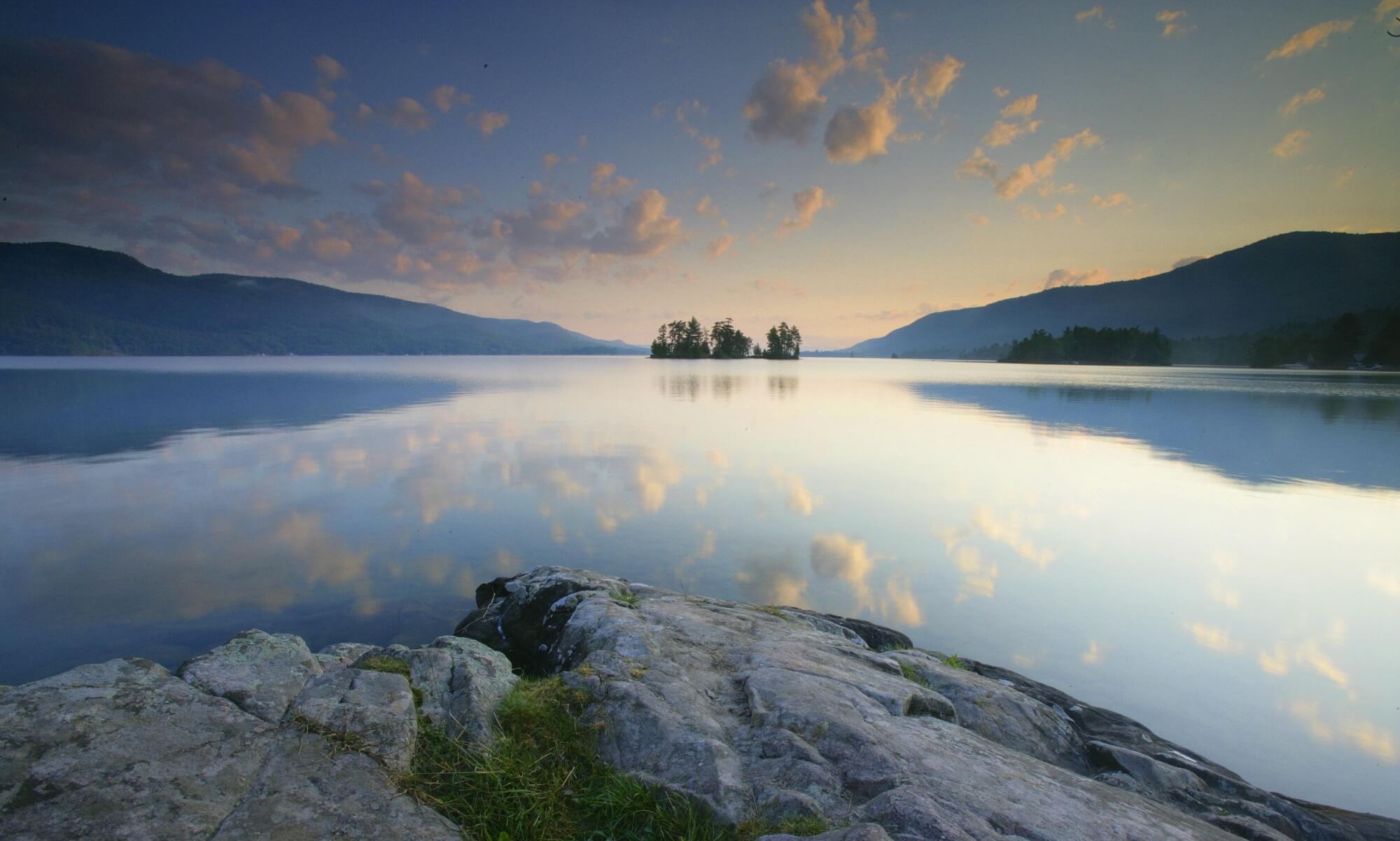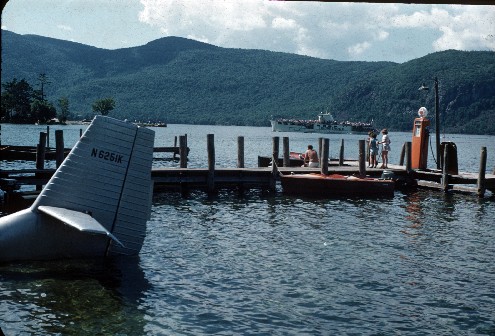On the way back to Huletts last night, as we were driving north on Route 4, we came across a brilliant rainbow. So we stopped and I was able to shoot some video. So here it is.
httpv://www.youtube.com/watch?v=YiKNm3Gjtf4

News & Opinion About Huletts Landing, N.Y.
On the way back to Huletts last night, as we were driving north on Route 4, we came across a brilliant rainbow. So we stopped and I was able to shoot some video. So here it is.
httpv://www.youtube.com/watch?v=YiKNm3Gjtf4

Lake George Forum Sold to Father of Actor Ralph Macchio
That’s right, the father of the Karate Kid, Ralph Macchio Sr., and owner of the Wild West Ranch, purchased the Lake George Forum.
Read about it in the Post Star.
Lake George Stream Rules Move Forward
The Albany Times Union reports that the proposed stream rules are moving forward but any further public hearings will take place in the “off-season” preventing seasonal residents from attending. Not a good sign for openness.

Click the Image to See Full Scale
This was a picture that didn’t make it into my book but because it’s a very early color photo of Huletts, I thought I’d share it here.
Some facts about the Ticonderoga (II)
Year Completed: 1944
Where Built: Bay City, Michigan
Cost to Build: $250,000
Length: 168 feet
Beam: 25′ 6″
Draft: 7′
Displacement: 360 tons
Construction: Steel
Horsepower: 900
Speed: 14 m.p.h.
Ironside Has Become Rusty
Denton Publications has a story about guardrails that were supposed to be an environmental innovation, becoming well……rusty.
Warren & Washington County Homes Sales Plunge
The Post Star has a story about plummeting homes sales in Warren and Washington Counties.
When Photoshopping Goes Too Far
Here’s an interesting story about how some media outlets have gotten into trouble when they photoshop images. This is an interesting subject as image manipulation becomes more advanced. (The code on the page linked to has an error which may force you to scroll to the right to see the article.)
This is a great piece on becoming an eco-driver. If you do these simple things when driving, you’ll help the environment and save money also.
httpv://www.youtube.com/watch?v=COvzakAmcF8
To learn more about eco-driving check out this website.
All things bright and beautiful,
All creatures great and small,
All things wise and wonderful,
The Lord God made them all.
Each little flower that opens,
Each little bird that sings,
He made their glowing colours,
He made their tiny wings.
The purple headed mountains,
The river running by,
The sunset and the morning,
That brightens up the sky;
The cold wind in the winter,
The pleasant summer sun,
The ripe fruits in the garden,
He made them every one:
The tall trees in the greenwood,
The meadows where we play,
The rushes by the water,
We gather every day;
He gave us eyes to see them,
And lips that we might tell,
How great is God Almighty,
Who has made all things well.
Cecil Alexander
Absentee Ballot Count to Start Wednesday
Budget Passed, Forest Preserve Tax Cap Eliminated
Price Chopper Expands Supermarket in Granville
Editor’s Note: Because Granville is in Washington County, sales tax collected here will go into Washington County’s total.
How would you like to get clear water without odor in your septic tank? Read about an amazing new product by Aero-Stream.
Excerpted from the Milwaukee Journal Sentinel
Posted: Nov. 21, 2008
Thoughts of gurgling toilets, sewage backup and foul-smelling liquid saturating the lawn flashed across Karl Holt’s mind when he realized his septic tank was nearly full.
It was potentially a very dirty problem, but Holt said he didn’t like the available remedies.
Pumping the tank is a short-term solution, and additives can hurt more than they help, he reasoned. Replacing the system would cost a minimum of $15,000 – not including re-seeding the lawn and replacing the deck.
“I was looking to save that $15,000,” said Holt, 45, president of Aero-Stream LLC in Hartland.
So he began tinkering.
The result is a patented product that sells for less than $1,000 that Holt says homeowners can use to revive failed septic systems and avoid more expensive alternatives. …
Aero-Stream®’s product, called a Remediator, transforms a septic system into one that is filled with oxygen-loving bacteria instead of less efficient, oxygen-hating bacteria, Holt said.
Call it aerobic exercise for a septic system; the Remediator pumps oxygen into the tank through a hole customers drill in its cover.
Holt says that destroys within 48 hours the oxygen-hating bacteria in the tank that have been eating the waste and encourages the growth of oxygen-loving bacteria.
Oxygen-rich liquid begins to flow out of the tank into the leach field. The oxygen-loving bacteria are so much more efficient at gobbling up waste they cut off the oxygen-hating bacteria’s food source by 70% to 80%, Holt said. They also eat the black slimy mix of oxygen-hating bacteria and their secretions that have been clogging the soil, and treated water starts flowing again down into the water table.
“Many people, even in the industry, do not understand the mechanics of the process and therefore find it difficult to comprehend the simple solution,” Holt said.
Read the whole piece here. Read about the company here. If only the LGPC and the environmental organizations would concentrate on products like these, we could improve the environment without taking people’s property rights away.
The Lake George Park Commission has posted the video from their February 24, 2009 public meeting where public comments were solicited on their proposed stream regulations.
The first video is from February 24, 2009, the first 11:00 AM session. It is 1 hour and 34 minutes.
If you don’t have the time to watch, here are the most salient parts from the first video. The public comments start at 22:30 into this video. Out of the 18 speakers featured in part one, 13 speakers were opposed or had concerns regarding the stream regulations, 5 spoke in favor of them.
If you have problems viewing the file above, use this link to the video file to download and view on your computer. (You can right click on this link and “Save Target As…” to download the entire file to your computer. It is quite large though.)
At 29:23 into the first video, there is an excellent speaker from the Lake George Property Owners Group who speaks about being at all the preliminary meetings where the rules were originally discussed before being drafted (and which went on for two years) and that the proposed rules now being considered bear no resemblance to what was ever discussed at those preliminary meetings.
At 1:30:00 into the first video, the speaker tells how he believes one of the most radical environmental groups active in the basin, the Fund for Lake George, is influencing these rules behind the scenes, through two appointees to the LGPC who were members of the Fund before they were appointed. This apparent conflict of interest is something everyone needs to know about.
If you watch these two speakers you will begin to see how the process is not a fair process but how the environmental organizations are “stacking the deck” in favor of these very extreme regulations.
The second video is from February 24, 2009, the second 11:00 AM session. It is 2 hours and 19 minutes.
Once again, we’ve tried to summarize the most important parts from this video also. Out of the 26 speakers featured in part two, 20 speakers opposed or had concerns regarding the stream regulations, 5 spoke in favor of them and 1 was neutral.
If you have problems viewing the file above, use this link to the video file to download and view on your computer. (You can right click on this link and “Save Target As…” to download the entire file to your computer. It is quite large though.)
The DEC representative leaves before this video even starts. So you can thank DEC Commissioner Grannis, for at least being up front, and not caring what people think.
At 1:00 into the second video, Kathy Simms, the Bolton Town Supervisor, speaks about all the comments she has received opposing the stream rules.
At 5:37 into the second video, Joe Rota, the former Dresden Town Supervisor who now lives in Putnam, tells why he is against the proposed rules.
At 42:00 and again at 1:38:45, we hear two speakers tell horror stories about road salt. Road salt isn’t even covered by these proposed rules.
At 1:10:15, John LaPointe, Town Supervisor of Putnam, states that the people he represents are “vehemently opposed” to the rules as drafted.
At 1:19:02, Mark Schachner, representing the Town of Lake George, states that the rule making procedure is “woefully, legally deficient.”
At approximately 1:57:00 a local logger talks about his love for the environment but also why he is opposing these rules.
The third video is from February 24, 2009, the evening session. It is 1 hour and 30 minutes.
The DEC representative never returns to the evening session.
The public comments start at 20:50 into this video. Michael White repeats his PowerPoint presentation from the first session. Out of the 18 speakers featured in part three, 17 speakers opposed or had concerns regarding the stream regulations, 1 spoke in favor of them.
If you have problems viewing the file above, use this link to the video file to download and view on your computer. (You can right click on this link and “Save Target As…” to download the entire file to your computer. It is quite large though.)
Huletts resident, Pat Peterson speaks at 45:36.
Peter Bauer, Executive Director for the Fund for Lake George, says in 1:25:20 – 1:25:33 that it’s “high time to deal with” golf courses. Listen for yourself.
Sadly, this is commentary and analysis you won’t see on other media outlets. But you can see it here on the Huletts Current. Don’t take our word, watch for yourself.
If you watch the whole thing, you’ll learn that 2 commissioners didn’t attend, the DEC representative left after the morning session and 2 commissioners had ties to the Fund for Lake George. While we won’t call this hearing a farce yet, after all three sessions: 50 people spoke out in opposition or had concerns regarding the draft rules, 11 were in favor and 1 was neutral. Let’s see how these public comments are incorporated. You saw it here, even if you weren’t there.
More People Using State Parks
CBS 6 has a story that reservations are up in state parks.
Road Salt is Bad for Your Health
The Albany Times Union has a story about how road salt can be damaging, not only to the environment, but to your health also.
This is Like Asking the Whitehall School District to Let Us Out
The Post Star reports, that some folks in Queensbury and Fort Ann are so fed up with paying high taxes, they want to have their own village.
A Wind Tower Coming to a Hill Near You?
The Post Star talks about an idea that may make some sense for the Adirondacks. We certainly have wind.
1903

Today

Flood Watch for Washington County
The National Weather Service has issued a flood watch for an area which includes Huletts.
Bears Be Gone
WNBZ Radio has an interesting story on the DEC’s release of how many bears were taken by hunters in the state this past year.
“Harvest increased in the Adirondacks as well, with a total of 582 bears taken in 2008 compared to 544 taken in 2007 and 318 taken in 2006.”